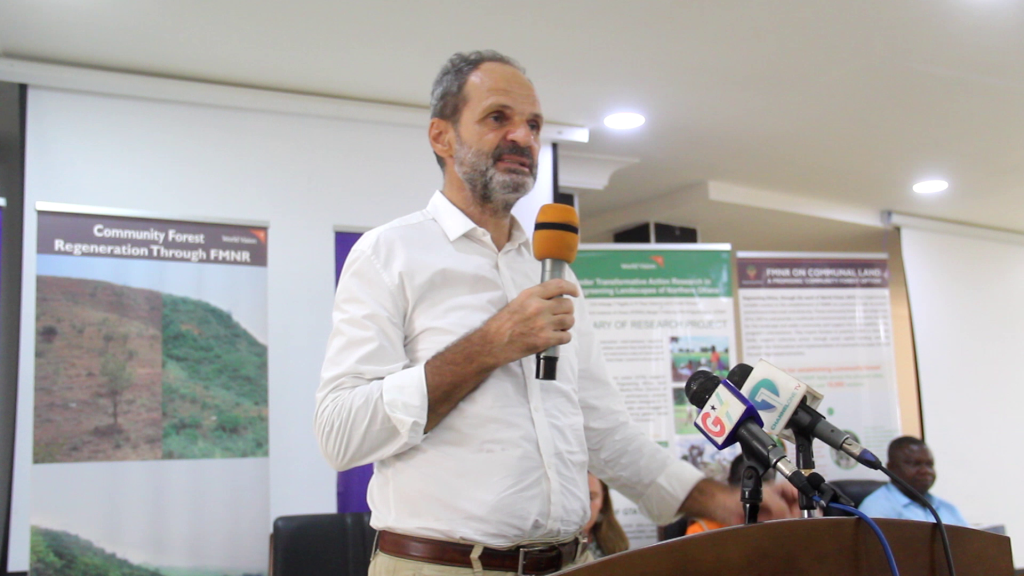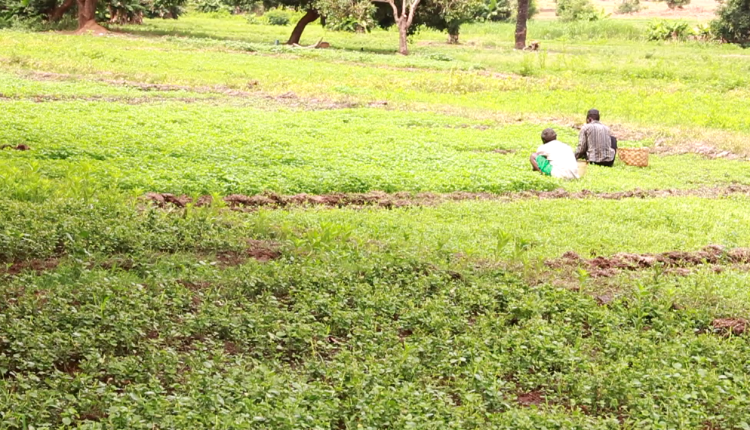The European Union (EU) has released a total of €15 million for its Regreening Africa programme phase two (II) program. The project will be implemented by CIFOR-ICRAF in collaboration with World Vision, Catholic Relief Services (CRS), CARE, Sahel Eco, and Agronomes & Vétérinaires Sans Frontières (AVSF).
The initiative aims to restore degraded landscapes, improve food and nutrition security, and strengthen community resilience to climate change across Ghana, Somalia, Ethiopia, Nigeria, Mali, Senegal, and Niger.
The EU hopes it will be achieved through regreening practices such as agroforestry, tree planting and management, home gardening with trees, soil and water conservation, soil health improvement, sustainable grazing and pastoral management, as well as the Farmer-Managed Natural Regeneration (FMNR) approach.
In Ghana, the programme is being implemented in the Upper East and Northern Regions through a €2 million investment.
Its objective is to scale up regreening practices that support smallholder farmers and pastoral households in adopting and benefiting from agroforestry while promoting effective soil and water conservation techniques.
To kick-start the program, environmental experts, donors, policymakers, and government representatives convened in Tamale and outlined the roadmap for the effective implementation of the second phase of the Regreening Africa programme.
The program according to the EU is a continent-wide initiative focused on restoring degraded landscapes and enhancing community resilience to climate change.
The first phase of the Regreening Africa programme which started in 2017 and ended in 2023 which promoted sustainable land management practices that supported over 600,000 households, covering nearly one million hectares of land across eight African countries.
The initiative also builds on practical, low-cost tools and approaches developed during the first phase of the programme to restore and regreen degraded land.
Speaking to the media in Tamale, Head of Cooperation of EU delegation to Ghana Massino Mina said the EU and Ghana have a very strong partnership and sustainable development remains core in the partnership.

Mr Mina explained that €1.5million phase I with the project was successfully implemented and the funding increase to €2million for phase II programme was based on success of phase I.
The EU, Mr Massino said, is fully aware of the challenges faced by Ghana, especially in the North of the country, citing extreme and prolonged dry spells; declining tree cover and increased soil infertility as some of critical issues they have taken notice of.
Implementing partners in Ghana, Catholic Relief Service (CRS) and World Vision expressed their gratitude to the EU for increasing funding support for scale up of phase II in northern and upper east regions.
Programme Director, agriculture livelihoods and landscape at CRS, Edward Anaba Akunyagra and Food security and resilience technical program manager at World Vision, Maxwell Amedi described the project as very important highlighting livelihoods of protection and preservation of trees and natural vegetation.
Lead Regreening Africa Stakeholder Engagement with evidence, Mieke Bourne said the Regreening Africa programme has been able to restore lands by bringing back trees, managing soil and increasing productivity and creating jobs for youth and women.
The program she said is a learning process between the EU and African countries and also builds each other to deal with unpredictability as a result of climate change and decrease in productivity.
The program, according to her, also seeks to create an enabling environment through supportive policies, strengthened local governance, women and youth empowerment, and increased investment to incentivise the widespread adoption of land restoration.
Programme Director for Agriculture & Livelihoods at the Catholic Relief Services in Ghana Edward Akunyagra said phase II will be implemented using experiences and practical lessons from phase I.
Three districts Mr Akunyagra said has been added to two initial districts making five districts in phases II. The second phase he added targets 60,000 households towards achieving 100,000 hectares of land restoration in the beneficiary districts.
There will also be green value chains to improve nutrition security at household level and also ensure that women are empowered economically.
On his part, the food security and livelihood technical program manager at world vision Ghana, Mr Maxwell Amedi reiterated the need for natural resources to be protected to ensure the wellbeing of the people.
Migration of young people from the north to the south in search of non-existing jobs Mr Amedi observed was as a result of the environment no longer being habitable to them for their survival.


